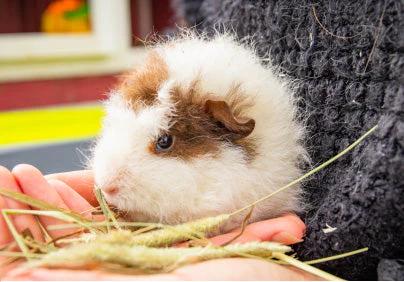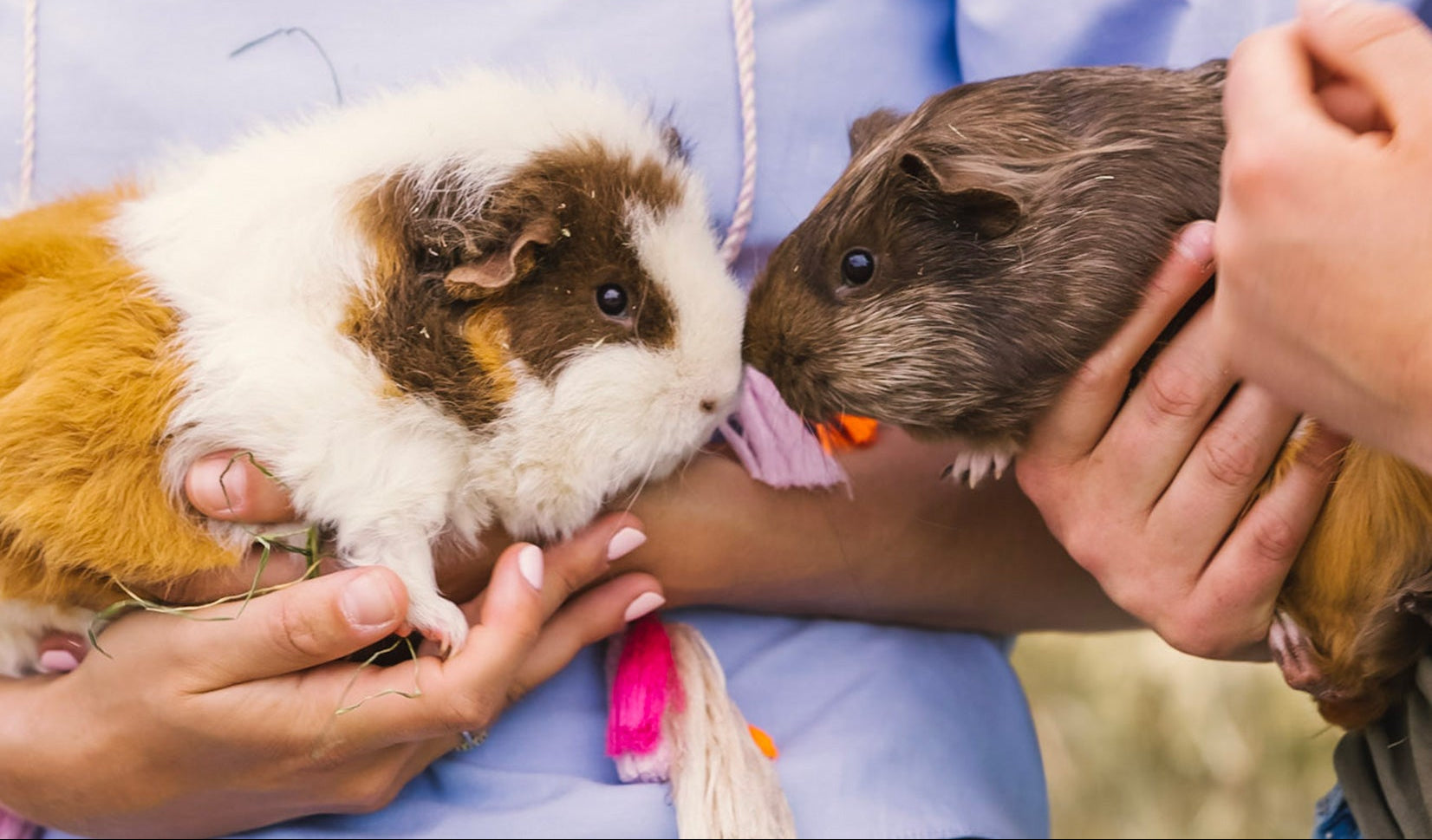When considering a pet, it's important to understand their lifespan. Rabbit and Guinea pigs are known for their adorable appearance and gentle nature, making them a popular choice for many pet owners,, they are also often considered starter pets. However this couldn't be further from the truth. Before adopting a new pet into your family it is important to consider how long can you expect your furry friend to be a part of your life?
What is the average lifespan of a pet rabbit?
The average lifespan of a pet rabbit is between 8 to 12 years. However, with proper care and a healthy lifestyle, some rabbits have been known to live up to 15 years or more. The lifespan of a rabbit can vary depending on various factors, including genetics, diet, exercise, and overall healthcare. It is important to understand that through extreme breeding, many desired breeds will have health issues which could be costly.
How can you ensure a long and healthy life for your pet rabbit?
To ensure your pet rabbit lives a long and healthy life, there are several key factors to consider:
1. Diet: A balanced diet is essential for your rabbit's overall health. Provide them with a variety of unlimited fresh hay, vegetables, and a limited amount of pellets. Avoid feeding them foods that are high in sugar or carbohydrates, as these can lead to obesity and other health issues.
2. Exercise: Rabbits are naturally active animals and require plenty of exercise to stay healthy. Provide them with a spacious enclosure or a safe area to hop around and explore. Regular exercise helps prevent obesity, promotes good digestion, and keeps their muscles strong. Rabbits should have plenty of space both vertically and horizontally to stretch jump and practice zoomies and binkies.
3. Veterinary care: Regular check-ups with an exotic veterinarian are crucial for maintaining your pet's health. Vaccinations, dental care, and preventive treatments for parasites are important aspects of their healthcare routine.
4. Socialization: Rabbits are social animals and thrive in the company of their human companions. Rabbits would naturally live in groups so a rabbit companion is considered essential. Spend quality time with your rabbit, providing them with mental stimulation and affection. This helps prevent boredom and promotes a happy, stress-free life.
What is the average lifespan of a pet Guinea pig?
The average lifespan of a pet guinea pig is between 5 to 7 years. However, with proper care and a healthy lifestyle, some guinea pigs have been known to live up to 8 years or more. The lifespan of a guinea pig can vary depending on factors such as genetics, diet, exercise, and overall healthcare.
How can you ensure a long and healthy life for your pet Guinea pig?
To ensure your pet guinea pig lives a long and healthy life, consider the following:
1. Diet: Provide your guinea pig with a balanced diet consisting of fresh hay, vegetables, and a small amount of pellets. Avoid feeding them foods that are high in sugar or fat, as these can lead to obesity and other health issues. Guinea pigs need to have vitamin C supplements as they cannot produce their own, also getting the correct balance of Calcium is important.
2. Habitat: Guinea pigs need a spacious and clean living environment. Provide them with a suitable cage that allows for exercise and exploration. Regular cleaning of the cage and providing fresh bedding is essential for their overall health and well-being.
3. Veterinary care: Regular check-ups with an exotic veterinarian who specializes in small animals are important for maintaining your guinea pig's health. Vaccinations, dental care, and preventive treatments for parasites are crucial aspects of their healthcare routine.
4. Socialization: Guinea pigs are social animals and enjoy the company of their human companions, they also need guinea pig companionship too. a Neutered male can live with another neutered male or a herd of neutered females. Females can often live happily in groups or pairs too. Spend time interacting with your guinea pig, providing them with mental stimulation and affection. This helps prevent boredom and promotes a happy, stress-free life.
What is the average lifespan of a pet Chinchilla?
The average lifespan of a pet chinchilla is between 10 to 15 years. However, with proper care and a healthy lifestyle, some chinchillas have been known to live up to 20 years or more. The lifespan of a chinchilla can vary depending on factors such as genetics, diet, exercise, and overall healthcare.
How can you ensure a long and healthy life for your pet Chinchilla?
To ensure your pet chinchilla lives a long and healthy life, consider the following:
1. Diet: Provide your chinchilla with a balanced diet consisting of high-quality hay, pellets, and occasional treats. Avoid feeding them foods that are high in sugar or fat, as these can lead to obesity and other health issues.
2. Habitat: Chinchillas need a spacious and well-ventilated living environment. Provide them with a suitable cage that allows for exercise and exploration. Regular cleaning of the cage and providing fresh bedding is essential for their overall health and well-being.
3. Veterinary care: Regular check-ups with a veterinarian who specializes in exotic pets are important for maintaining your chinchilla's health. Dental care, vaccinations, and preventive treatments for parasites are crucial aspects of their healthcare routine.
4. Exercise: Chinchillas are active animals and require plenty of exercise to stay healthy. Provide them with a safe area to run, jump, and play. Regular exercise helps prevent obesity, promotes good digestion, and keeps their muscles strong.
What is the average lifespan of a pet mouse?
The average lifespan of a pet mouse is between 1.5 to 2.5 years. However, with proper care and a healthy lifestyle, some mice have been known to live up to 3 years or more. The lifespan of a mouse can vary depending on factors such as genetics, diet, exercise, and overall healthcare.
How can you ensure a long and healthy life for your pet mouse?
To ensure your pet mouse lives a long and healthy life, consider the following:
1. Diet: Provide your mouse with a balanced diet consisting of high-quality mouse pellets, fresh vegetables, and occasional treats. Avoid feeding them foods that are high in sugar or fat, as these can lead to obesity and other health issues.
2. Habitat: Mice need a clean and secure living environment. Provide them with a suitable cage that allows for exercise and exploration. Regular cleaning of the cage and providing fresh bedding is essential for their overall health and well-being.
3. Veterinary care: Regular check-ups with a veterinarian who specializes in small animals are important for maintaining your mouse's health. Vaccinations, dental care, and preventive treatments for parasites are crucial aspects of their healthcare routine.
4. Enrichment: Mice are intelligent and active animals. Provide them with toys, tunnels, and opportunities for mental stimulation. Regular exercise and environmental enrichment help prevent boredom and promote a happy, stress-free life.
5. Companionship: Mice are happiest in pairs or groups, it helps their prey instinct as they feeler safer together. It also means they can play and socialise.
What is the average lifespan of a pet Rat?
The average lifespan of a pet rat is between 2 to 3 years. However, with proper care and a healthy lifestyle, some rats have been known to live up to 4 years or more. The lifespan of a rat can vary depending on factors such as genetics, diet, exercise, and overall healthcare.
How can you ensure a long and healthy life for your pet Rat?
To ensure your pet rat lives a long and healthy life, consider the following:
1. Diet: Provide your rat with a balanced diet consisting of high-quality rat pellets, fresh fruits, vegetables, and occasional treats. Avoid feeding them foods that are high in sugar or fat, as these can lead to obesity and other health issues.
2. Habitat: Rats need a clean and spacious living environment. Provide them with a suitable cage that allows for exercise and exploration. Regular cleaning of the cage and providing fresh bedding is essential for their overall health and well-being.
3. Veterinary care: Regular check-ups with a veterinarian who specializes in small animals are important for maintaining your rat's health. Vaccinations, dental care, and preventive treatments for parasites are crucial aspects of their healthcare routine.
4. Socialization: Rats are social animals and need other rats to live with and enjoy the company of their human companions. Spend time interacting with your rat, providing them with mental stimulation and affection. This helps prevent boredom and promotes a happy, stress-free life.
What is the average lifespan of a chicken?
The average lifespan of a chicken depends on the breed and purpose. Generally, backyard chickens can live between 5 to 10 years. However, some heritage breeds and well-cared-for chickens have been known to live up to 12 years or more. The lifespan of a chicken can vary depending on factors such as genetics, diet, exercise, and overall healthcare.
How can you ensure a long and healthy life for your chicken?
To ensure your chicken lives a long and healthy life, consider the following:
1. Diet: Provide your chicken with a balanced diet consisting of high-quality chicken feed, fresh vegetables, and occasional treats. Ensure they have access to clean water at all times. Avoid feeding them foods that are harmful to chickens, such as chocolate or avocado.
2. Habitat: Chickens need a safe and comfortable living environment. Provide them with a suitable coop that offers protection from predators and extreme weather conditions. Regular cleaning of the coop and providing fresh bedding is essential for their overall health and well-being.
3. Veterinary care: Regular check-ups with a veterinarian who specializes in poultry are important for maintaining your chicken's health. Vaccinations, parasite control, and preventive treatments are crucial aspects of their healthcare routine.
4. Exercise: Chickens need opportunities for exercise and free-ranging. Provide them with a secure outdoor area where they can scratch, peck, and explore. Regular exercise helps prevent obesity, promotes good digestion, and keeps them mentally stimulated.
So there is your guide to pet lifespans, hopefully that helps on your journey to choosing your next pet to join your family. Remember - Adopt, Don't Shop!













